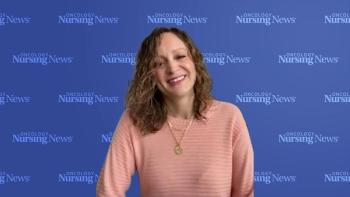
Courtney Moore, APRN, FNP-C, OCN, discusses planning beyond first-line CDK4/6 inhibitors and supportive care strategies for patients with HR+/HER2– disease.

Courtney Moore, APRN, FNP-C, OCN, discusses planning beyond first-line CDK4/6 inhibitors and supportive care strategies for patients with HR+/HER2– disease.

Subcutaneous daratumumab is well tolerated, but ongoing immune monitoring is key to managing infection risk in patients with multiple myeloma.

An LED-based intraoral device for photobiomodulation therapy was safe and reduced severe oral mucositis in patients with head and neck cancers.

The REMS program for vandetanib in the treatment of patients with medullary thyroid cancer has been removed by the FDA.

Michelle Kirschner, MSN, RN, ACNP, APRN-BC, discusses precision supportive care and tailored survivorship strategies in an ONN interview.
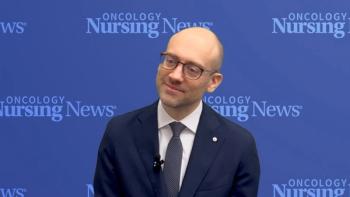
At SOHO 2025, Lorenzo Falchi, MD, highlighted the critical role of nurses in monitoring and educating patients on toxicities from novel lymphoma therapies.

Michelle Kirschner, MSN, RN, ACNP, APRN-BC, discusses how precision supportive care tailors interventions to patient needs.
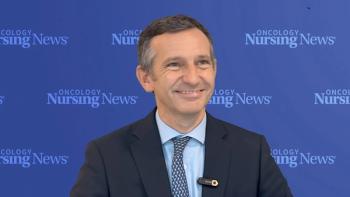
Benjamin Besse, MD, PhD, shares AE management strategies for amivantamab/lazertinib in EGFR-positive NSCLC following CHRYSALIS-2 results.

Read an advanced practice nurse's tips for treating patients with endometrial cancer with durvalumab.
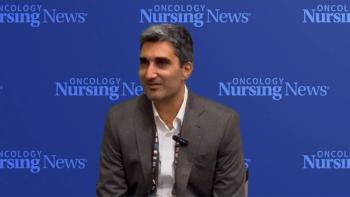
Ghayas C. Issa, MD, MS, discusses key adverse events of menin inhibitors in NPM1-mutated and KMT2Ar AML.

Expert Kelsey Martin shares nursing insights on balancing glucose control and GI side effects when caring for patients on PI3K and AKT inhibitors.

Familiarity with each component of antibody-drug conjugates helps nurses and APPs deliver proactive adverse event management to patients with cancer.
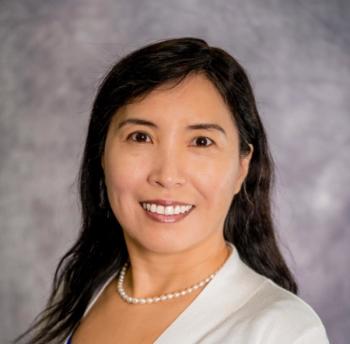
Lisa Hwa Christenson, DNP, CNP, FAPO, shares best practices for monitoring CRS and ICANS with BCMA bispecific antibodies in community oncology.

Understanding which patients may benefit from CLDN6-targeting immunotherapy and recognizing potential adverse effects is essential for oncology nurses.
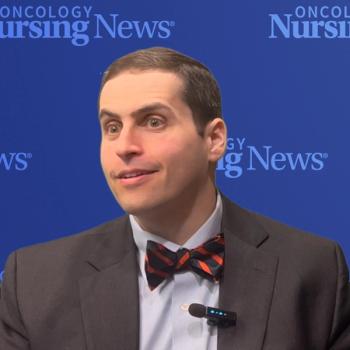
The role of nurses and APPs is crucial to ensuring patients with cancer can receive newer therapies, shares David A. Braun, MD, PhD.

Survey results show patients may overestimate dermatologic AEs from anti-cancer therapies, raising concerns for treatment adherence.

Nurse practitioner Beth Faiman shares strategies to reduce infection risk in patients receiving bispecific antibodies for multiple myeloma.

Ronald Bleday, MD, discusses how nurses support a step-wise model to minimize opioid use after colorectal surgery while ensuring safe pain control.

Catering supportive care to the individual being treated helps better meet the needs of each patient, says Michelle Kirschner, MSN, RN, ACNP, APRN-BC.

CRS is a common but manageable toxicity of CAR T-cell therapy and bispecific antibodies. Learn strategies to identify and manage this adverse effect.

Paolo Tarantino, MD, PhD, discusses ADC structure, toxicity, and nursing consideration for the treatment of patients with breast cancer.

Nurse practitioner Beth Faiman outlines nursing strategies to monitor, assess, and manage toxicities associated with talquetamab in multiple myeloma.

A significant reduction of opioid use in patients after colorectal surgery was supported by clinician and patient compliance, says Ronald Bleday, MD.

A nurse-led clinic to aid in patient-reported symptom burden had high patient satisfaction.

Melissa Rikal, MSN, FNP-BC, AOCNP, explained that adverse effects are common among the available antibody-drug conjugates in breast cancer.

Oncology nurses play a key role in monitoring, managing, and personalizing CDK4/6 inhibitor treatment to minimize toxicities and protect quality of life, according to Courtney Moore, APRN, FNP-C, OCN.

Treatment access can still affect patients in urban communities, said Mary Steinbach, DNP, APRN.
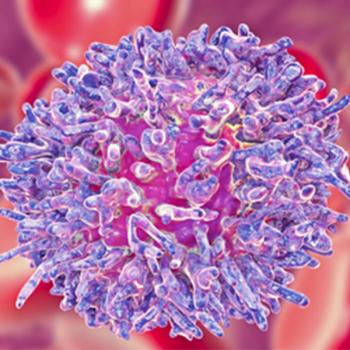

A care model led by advanced practice nurses was feasible in providing supportive care and linking providers through post-trial care transitions.

Maria C. Velez, MD, shared that teamwork between pediatric and adult care teams can make the transition of care smoother for AYA patients.